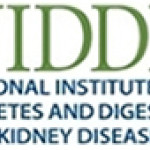- Industrie: Government; Health care
- Number of terms: 17329
- Number of blossaries: 0
- Company Profile:
The National Institute of Diabetes and Digestive and Kidney Diseases (NIDDK) conducts and supports research on many of the most serious diseases affecting public health. The Institute supports much of the clinical research on the diseases of internal medicine and related subspecialty fields, as ...
Thin tubes in the body that carry white blood cells and lymphatic fluid. Lymphatic fluid has cells that fight infection.
Industry:Health care
The use of different medicines together to manage blood glucose levels.
Industry:Health care
The type of heart failure in which loss of the heart’s pumping power causes fluid to build up in the body.
Industry:Health care
The substance made first in the pancreas and then broken into several pieces to become insulin.
Industry:Health care
The storage form of fat in the body. High triglyceride levels may occur when diabetes is out of control.
Industry:Health care
The smallest of the body's blood vessels. Oxygen and glucose pass through capillary walls and enter the cells. Waste products such as carbon dioxide pass back from the cells into the blood through capillaries.
Industry:Health care
The rate at which the kidneys filter wastes and extra fluid from the blood, measured in milliliters per minute.
Industry:Health care
The rapid, deep, and labored breathing of people who have diabetic ketoacidosis.
Industry:Health care
The process of cleaning wastes from the blood artificially. This job is normally done by the kidneys. If the kidneys fail, the blood must be cleaned artificially with special equipment. The two major forms of dialysis are hemodialysis and peritoneal dialysis.
Industry:Health care
